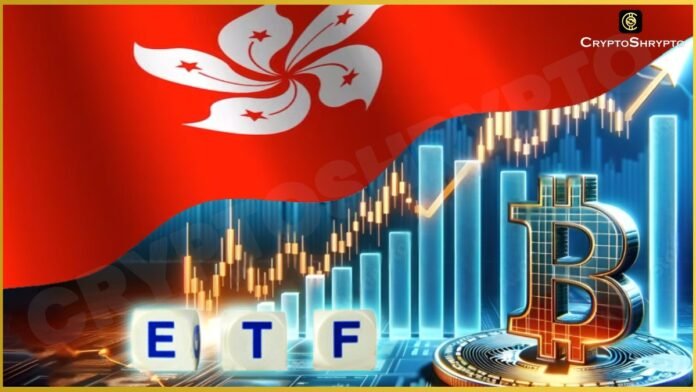On July 23, Hong Kong will launch Asia’s inaugural Bitcoin futures inverse product, the CSOP Bitcoin Future Daily (-1x) Inverse Product (7376.HK). This new exchange-traded fund (ETF) is being introduced by CSOP Asset Management, one of China’s leading asset managers. The ETF is designed to allow investors to profit from declines in Bitcoin prices.
This development comes on the heels of the successful launch of the CSOP Bitcoin Futures ETF (3066.HK) in December 2022, further cementing CSOP’s expansion in the Asia-Pacific region. The CSOP Bitcoin Futures Daily (-1x) Inverse Product aims to closely replicate the inverse daily performance of the S&P Bitcoin Futures Index.
The inverse ETF accomplishes this by employing a futures-based replication strategy, investing directly in spot-month Bitcoin Futures traded on the Chicago Mercantile Exchange. According to a company announcement on July 22, the ETF will be listed on the Hong Kong Stock Exchange (HKEX) at an initial price of approximately 7.8 Hong Kong dollars per unit.
Tristan Frizza, Founder of Zeta Markets, told that the launch of the inverse Bitcoin ETF highlights the growing sophistication of crypto financial products worldwide. “Financial instruments like this, which allow betting against the market, can help balance speculative activities and contribute to long-term market stability, aiding the maturation of the crypto sector and its acceptance as a mainstream investment asset,” Frizza explained.
Since late 2022, HKEX has been offering spot crypto ETFs, following the introduction of the CSOP Bitcoin Futures ETF and Ether Futures ETF. These ETFs track Bitcoin and Ether futures cash-settled contracts traded on the CME. In January 2023, Samsung Asset Management Hong Kong also introduced a Bitcoin futures ETF.
As of April 29, the combined assets under management for these three HKEX crypto ETFs reached 1.3 billion HKD (approximately $170 million). However, on July 5, the Hong Kong Securities and Futures Commission (SFC) issued alerts regarding seven crypto exchanges operating illegally in the region. These exchanges were flagged for offering services without the necessary operational licenses and were added to the SFC’s “Suspicious virtual asset trading platforms” list.
The SFC’s initiative to maintain public records of registered, unregistered, and illegal crypto trading entities aims to mitigate the risks of fraud and scams in the rapidly growing crypto market.




